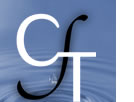 |
||||||||||
Office Hours
Office hours are important opportunities for good teaching. Face-to-face in private, students share their confusions, misunderstandings, and questions more candidly and completely than they do in class, and you are in the best position to give them the individual attention they need.
Making the Most of Office Hours, chapter 10 from Teaching at Its Best: A Research-Based Resource for College Instructors, Second Edition, by Linda B. Nilson (2003), is a great source of information on how to make your office hours more productive. The entire chapter is online, courtesy of the Tomorrow's Professor listserv.
Getting Students to See You
Make efforts to induce students to see you. These efforts include finding the right place, setting the right times, and giving a lot of encouragement.
The right place: Office hours need not always be in your office. Students may be more attracted to seeing you in a coffee shop or other comfortable locale on campus.
The right times: Be careful and considerate in scheduling your office hours. If you are available only briefly during prime class time--that is, when students are attending their other classes--then you immediately reduce your students' ability to see you. If you teach a discussion, recitation, or laboratory section, make sure that your office hours do not overlap with the lecture portion of the course. If there aren't enough hours in the day, consider scheduling an early evening office hour, perhaps in the student union, the most appropriate library, or another student-friendly location. During the semester, remind your students that you also meet by appointment
The right encouragement: Start out by publicizing your office hours, first in your syllabus, then on the board during the first day of class, and intermittently during the term before "high traffic" weeks (before exams and paper deadlines). Post your office hours prominently outside your office door. Even the warmest encouragement may not get students into your office hours, so you may have to "require" their attendance. For example, you could require each student to schedule a meeting with you early in the semester--as part of a paper assignment (draft review) or to go over a problem solution. This first meeting will foster repeat visits.
When students arrive to meet with you, especially the first time, make them feel more comfortable with some brief personal chat. It is helpful to spend the first few minutes finding out how they are, how they find the course, and how they are experiencing college. However, be careful to maintain appropriate boundaries in your relationship with the student. If you are meeting in your office, close the door for privacy but leave it slightly ajar. Also, maintain a respectable seating distance.
Making Office Hours Productive
Advise students on how to prepare for meetings with you. You might instruct them to bring appropriate materials, such as their lecture notes, books, homework problems, drafts of their papers, or readings with troublesome passages marked. You might tell them to write out their questions or points of confusion to help clarify and prepare before meeting with you. In addition, remind them that office hours are not an opportunity to receive a recap of a lecture or lesson.
Make your sessions with students a chance to continue teaching them, by helping them work through their own confusions or problems. It may be helpful to respond to their questions with further questions that will lead them to their own conclusions. Provide guidance toward problem-solving rather than simply giving students the answer.
Office Hours, from the University of Washington, provides helpful tips on managing office hours.
Helping Students Get More Out of Office Hours, from the McGraw Center at Princeton University.
HOME | ABOUT CFT | PROGRAMS | SERVICES | RESOURCES
Center for Teaching |
General Questions? Web Site Questions? Copyright ©2009 |
